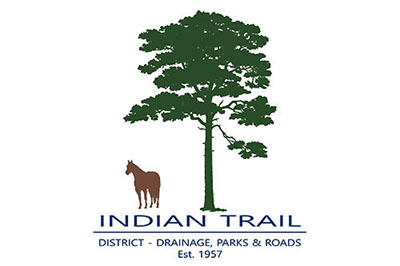The Indian Trail Improvement District Board of Supervisors will soon hear a staff proposal on a new plan for selecting dirt roads to be covered over with asphalt millings.
It is one of several items expected to be on the board’s Wednesday, Aug. 16 agenda. Other likely items include supervisors’ efforts to push back against a proposed off-highway vehicle (OHV) park and campground in the northwest portion of the district; annexation anxieties spurred by indications that Palm Beach Gardens and Wellington may want to bite off valuable pieces of commercial property currently part of ITID along Northlake and Southern boulevards, respectively; and a discussion of the board’s priorities for the 2024 session of the Florida Legislature.
Led by ITID Executive Director Burgess Hanson, district staff will propose a lottery system for those seeking to have their dirt road milled and a no-petition method for those who oppose millings to let their feelings be known.
Meanwhile, the district would move forward with milling “blocks” of dirt roads as they fit into ITID’s schedule. “We will continue to do blocks of roads until we have milled all the roads,” Hanson said. “It’s financially unsustainable to keep [maintaining 389 miles] of dirt roads.”
Under the new plan, those dirt-road residents with a 50 percent plus one petition asking for millings will no longer have to wait in line — sometimes camping out overnight — to be one of the first five petitioners at the ITID offices on Oct. 1, the first day of the fiscal year.
Instead, over a multi-day period, yet to be determined, those seeking millings would be able to present their petition at ITID’s offices at 13476 61st Street North, and the five streets to be milled would be selected in a blind lottery, Hanson said.
Residents would not have to pay $500 up front to participate in the lottery, but those selected would be charged.
Once the petition is accepted and the road is selected for millings, there would be no mechanism for backing out, Hanson said.
Meanwhile, residents of dirt roads selected through the district’s block formula will be notified through the mail and via door and gate hangers, he said, giving them the opportunity to vote on millings via postal mail or e-mail. Precautions will be taken to ensure that the votes are legitimate, he said. “No individual citizen will have to go door to door,” said Hanson, and the residents’ decision would be good for three years.
Currently, ITID crews are milling approximately 20 miles of roads per year, according to a report shared by district staff at the supervisors’ July 25 meeting. Hanson said this week that if the funding is available, ITID crews could do 30 miles per year.
That same report stated that maintaining the district’s dirt roads will cost $22.8 million over the next 10 years, all of which must be paid for by per-acre assessments to property owners, since ITID is a special district and not a municipality, thus it gets no state, county or federal funding for roads.
Most of the district’s dirt roads require grading every 10 days, some once a week, Hanson said. “We just can’t keep up with [maintaining] the dirt roads. At the same time, road rock prices continue to increase,” he said.
By contrast, millings — also known as “reclaimed asphalt pavement” or RAP — are considerably cheaper. According to the Federal Highway Administration, about 90 million tons of asphalt pavement are reclaimed as millings each year.
Many of the district’s milled roads have been in service for 12 to 15 years with no ongoing maintenance, Hanson said.
The issue has come to a head recently as residents of 94th Street North have gone back and forth with mill and don’t-mill petitions for their two-mile dirt road that offers scenic views of the J.W. Corbett Wildlife Management Area. In a spirit of compromise, staff will recommend that 94th Street be milled from Mandarin Blvd. east to the L Canal and left dirt from Mandarin west to 190th Street North, Hanson said.
But Hanson explained that people seeking a non-urban, even non-suburban, way of life are fighting an unnecessary fight for something that is not sustainable.
“Rural is a state of mind, it’s not about what’s on the surface of your road,” Hanson said.








